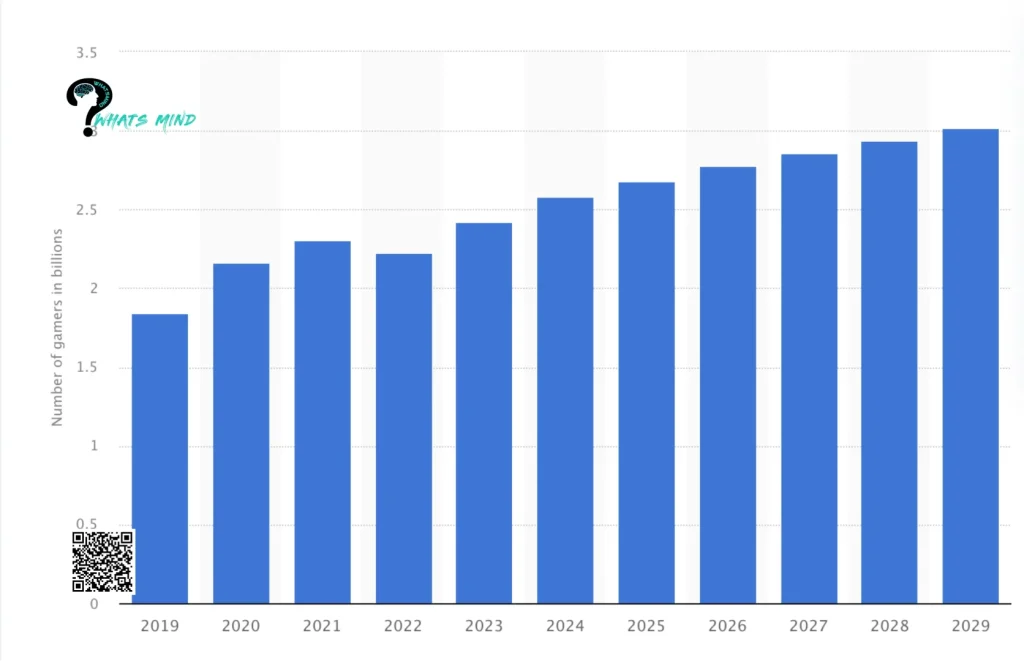Video Game Security is the Statista reports indicate that the worldwide number of players in the gaming segment of the mass media market is expected to hit 2.58 billion people by the end of 2024. Within five years, that figure should swell to 3.02 billion people. Such is the global appeal of gaming. Safety is always a top priority with so many people scrambling to register their credentials online.

According to the Crowd Strike 2024 Global Threat Report, there were 34 newly named adversaries in 2023, 230+ total adversaries, a 75% uptick in cloud intrusions, a 76% jump in data theft victims in the dark web, with more than 75% of attacks being malware free. Simply put, cybersecurity is a top priority.
Leading antivirus developer, Kaspersky, presents a short list of the most dangerous online gaming risks for players. These include, but are not limited to, the following:
- Spyware
- Data Breaches
- DDOS Attacks
- Identity Theft
- Phishing Emails
- Account Takeover
- Cross Site Scripting
- Viruses and Malware
- Swatting and Doxing
- Cyberbullying/Intimidation
Each one of these potential threats exist in the online gaming universe. However, there are many ways for players to stay safe while gaming. It’s important to be safe and secure when playing online. Start with a reputable gaming platform like Zynga Games – you can avoid all the aforementioned security threats and save yourself from the horrors that follow.
Any time you are engaging in multiplayer games over the Internet, with personally identifiable information changing hands, security is sacrosanct.
Play on Legitimate Gaming Platforms
Despite all your best intentions with cybersecurity measures, they will all be for naught if you select a nefarious site to play on. In other words, pick credible gaming platforms that have been vetted by players, industry aficionados, and perhaps even licensing authorities.
In other words, stick with authentic gaming sites. It’s way too easy to volunteer sensitive information to bad actors. On that point, be careful where you download any additional game elements like cheat sheets, in-game characters, add-ons, and the like.
Many of these sites pray on the unsuspecting efforts of avid gamers. Since most gamers are tech savvy, so are the perpetrators attempting to steal your personal information. They may use your credentials for sabotage, ransom, or to steal personally identifiable information. Never volunteer any information that you don’t want getting out there.
Software Updates and Patches
All software needs to be up-to-date at all times. Hackers will exploit weaknesses – gaps, or invalid code to intercept your personal information. Game software and device software must be updated, in addition to antivirus software and anti-malware programs that may be running. If required, use a VPN to obfuscate your traffic flow via an encrypted tunnel. This prevents hackers
from identifying your IP address and infiltrating your workstation. As with all forms of software, including VPNs, be sure that they maintain a no logs policy, in case they are hacked and your information is leaked.
Alphanumeric Passwords
The best protection against hackers is a randomly generated alphanumeric password. These are virtually impossible to guess, particularly when password generators are used to create them. Secure your browser – Firefox, Chrome, Safari – since browsers store passwords.
Password protection locks can easily be implemented to safeguard the interception of your username/password combinations from your browser. On the topic of strong passwords, at least 12 characters should be used.
These must include upper and lowercase letters, symbols, and numbers. Too many people, including gamers, use easily guessable passwords such as 0000, 1234, or their birthdates/pet names/partner names, etcetera. Be safe or be sorry.
Multifactor Authentication Protocol
An ingenious innovation, multifactor authentication, often known as 2-FA makes it that much more difficult for cybercriminals, thieves, or miscreants to intercept your personal information when gaming. When you use 2-FA, you essentially put a two-step security lock on your gaming account.
The initial password and an additional code authorization will be required through your email, smartphone, or authenticator. By adding this additional obstacle, cybercriminals will rather look elsewhere when plying their trade.
Your Audio Visual Hardware May Be On
Whenever you engage in gaming action with a video camera and microphone, you risk bad actors recording personal information. Be careful – only turn the camera on for people you trust and know. And when you’re done, be sure to turn off your camera and mic.
Never Volunteer Information to Suspect Sites
There are many different scam sites and techniques in use today, including phishing and pharming. Be advised that pharming uses DNS hijacking and related methodologies to trick you into visiting a malicious website.
Phishing is about sending emails from people claiming to be legitimate businesses with links to fake websites that resemble authentic sites. But, the software contains vulnerabilities, and malicious code is injected into your system. As a rule, never open any suspect emails. Never volunteer any personal or identifiable information over the phone. Proceed with caution at all times. If in doubt, don’t.
The Wisconsin Department of Public Instruction provides various ‘Staying Safe Tips for Gamers.’ These include sticking to reputable games and platforms from known providers such as PlayStation Store, App Store, Google Play Store, MSN Games, Xbox Live, etc. Legitimate online gaming providers are a dime a dozen, but credential verification is always a good idea.
Never try to purchase a dirt cheap version of a game you want to play from some third-party site – it’s a recipe for disaster. As for swatting and doxxing, be mindful of putting too much information out there because bad actors can create havoc for you by sending the police to your home or publishing your personal information for everyone else to use against you. Safety first, players!
For more info visit Whatsmind.com
















